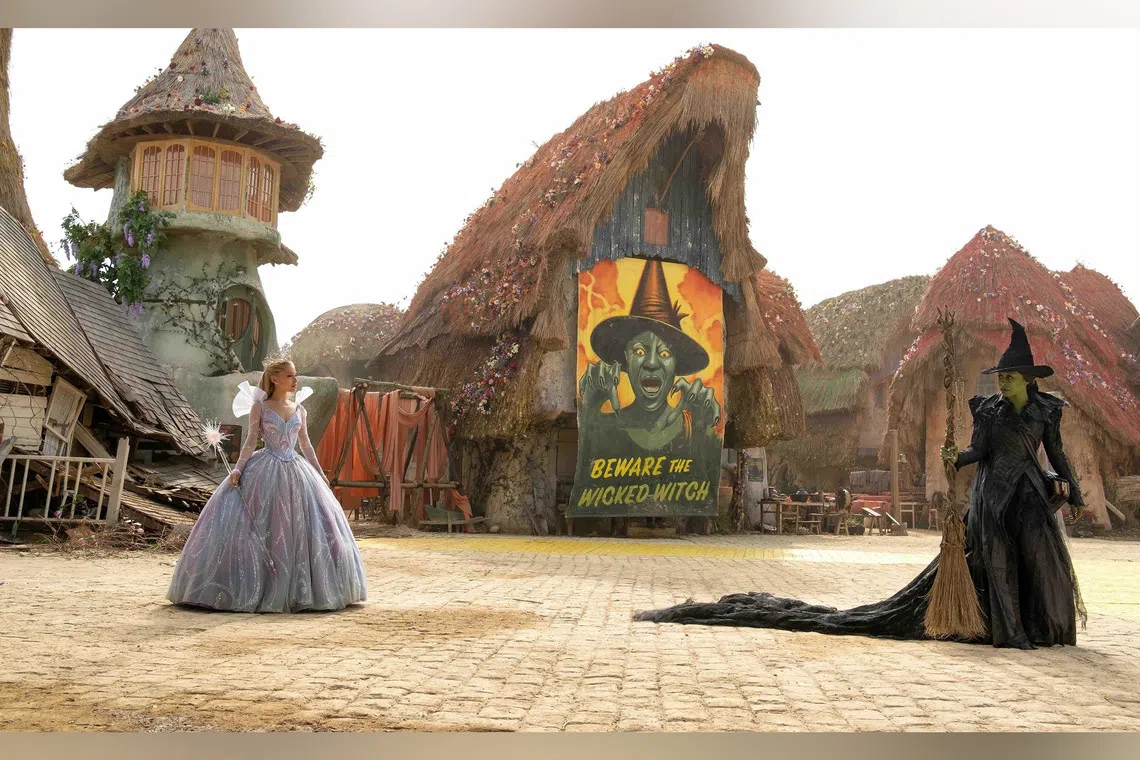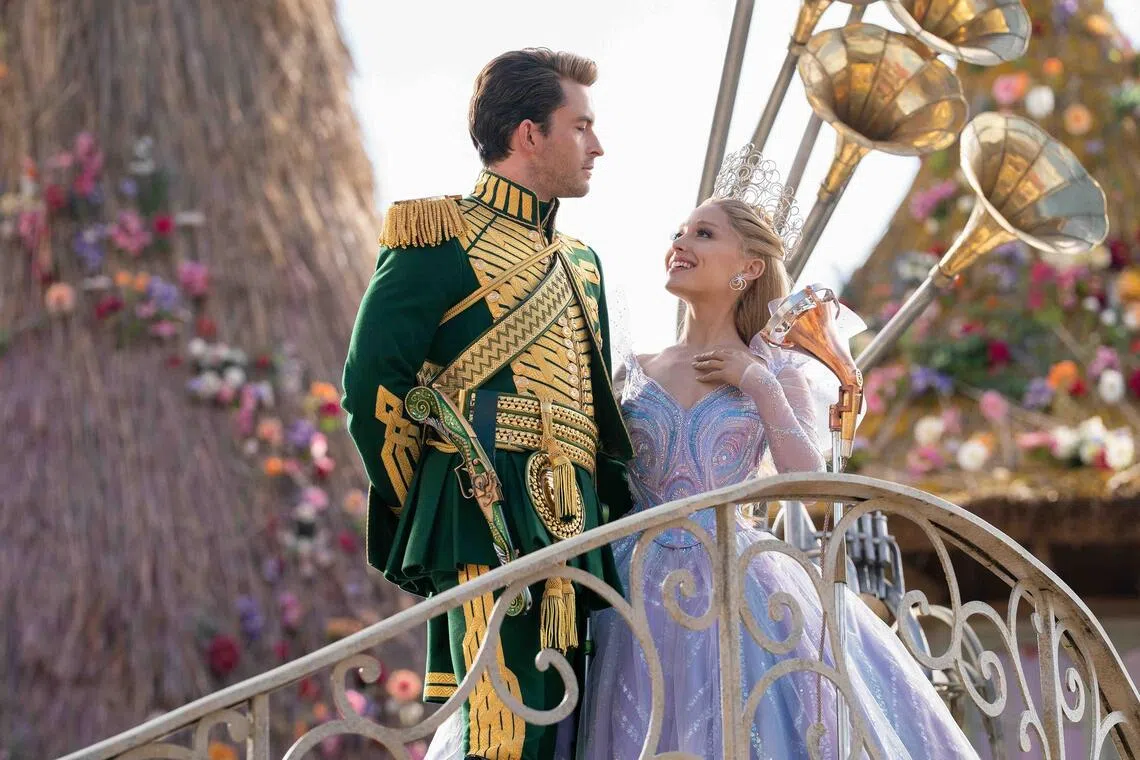At The Movies
Ariana Grande and Cynthia Erivo deliver a spectacular finale in Wicked: For Good
Sign up now: Get ST's newsletters delivered to your inbox

Ariana Grande (left) is Glinda and Cynthia Erivo is Elphaba in Wicked: For Good.
PHOTO: UIP
Follow topic:
Wicked: For Good (PG)
137 minutes, opens on Nov 20
★★★★☆
The story: Following the events of Wicked (2024), Elphaba (Cynthia Erivo), now labelled the Wicked Witch of the West, is an outlaw, pursued by the Wizard (Jeff Goldblum) and his ally Madame Morrible (Michelle Yeoh). Elphaba’s friend and former classmate Glinda (Ariana Grande) is adored by the Ozians, who call her Glinda the Good. Elphaba does what she can to help the Munchkins, now oppressed by Elphaba’s half-sister Nessarose (Marissa Bode), the new Governor of Munchkinland.
Come for the star power and the music; stay for the politics. In this second and concluding part of the story, battle lines are drawn between supporters of the Wizard and Elphaba.
The film’s capacious 137-minute runtime could have been filled with spell-casting action – after all, Madame Morrible and Elphaba, who sit on opposing sides of the conflict, possess magic powers.
While there is some witchy battling between the two, much of the time is taken up with characters dealing with caste divides, state propaganda and the idea of a useful enemy that deflects attention from real problems.
The source novel, published in 1995, was overtly anti-fascist, a tone that was softened for the 2003 Broadway musical and, presumably, further softened for this movie adaptation.

Jonathan Bailey as Fiyero and Ariana Grande as Glinda in Wicked: For Good.
PHOTO: UIP
But the sting of political criticism is unavoidable in the movie because it is the source of dramatic conflict between Elphaba, the Animals and the Munchkins on one side, and the Oz establishment on the other, represented by Madame Morrible and the Wizard.
Except perhaps for Morrible, no one on the side of oppression is presented as evil – Glinda, Nessarose and even the Wizard do what they do because they crave validation. Elphaba’s moral correctness is rooted in her awareness of her own weaknesses.
It is a civil war in all but name. As in every internal conflict, it pits sister against sister and friend against friend, so there is plenty of room for songs about bonds torn asunder.
This observation will irritate the musical’s fervent following: The tunes feel crafted not for hummability but to showcase the performer’s vocal range in the hope of winning awards.
The music does, however, showcase the peerless singing of Grande, Erivo, Jonathan Bailey (as Fiyero, Glinda’s beloved), Bode and Ethan Slater (as the Munchkin Boq).
Yeoh and Goldblum do their best. Their singing – perfectly adequate for karaoke night, but sorely lacking when placed along the likes of Erivo and Grande – reflects the foresight of the producers and American director Jon M. Chu in casting real singers in the leading roles.
Chu, for his part, continues to exercise his extraordinary gift for visual maximalism. Wicked: For Good is a fantasia in pink, gold and green, an aesthetic choice that fits the story’s fairy-tale structure.
In this fantasy, however, the princesses overflow with strength and smarts. Rather than let the handsome prince sweep them off into his castle, they recruit him to their cause.
Hot take: Haters of musicals will find the 137-minute runtime a test of patience, but the story’s visual splendour, strong lead performances and sincere take on friendship and liberation sell the package.


